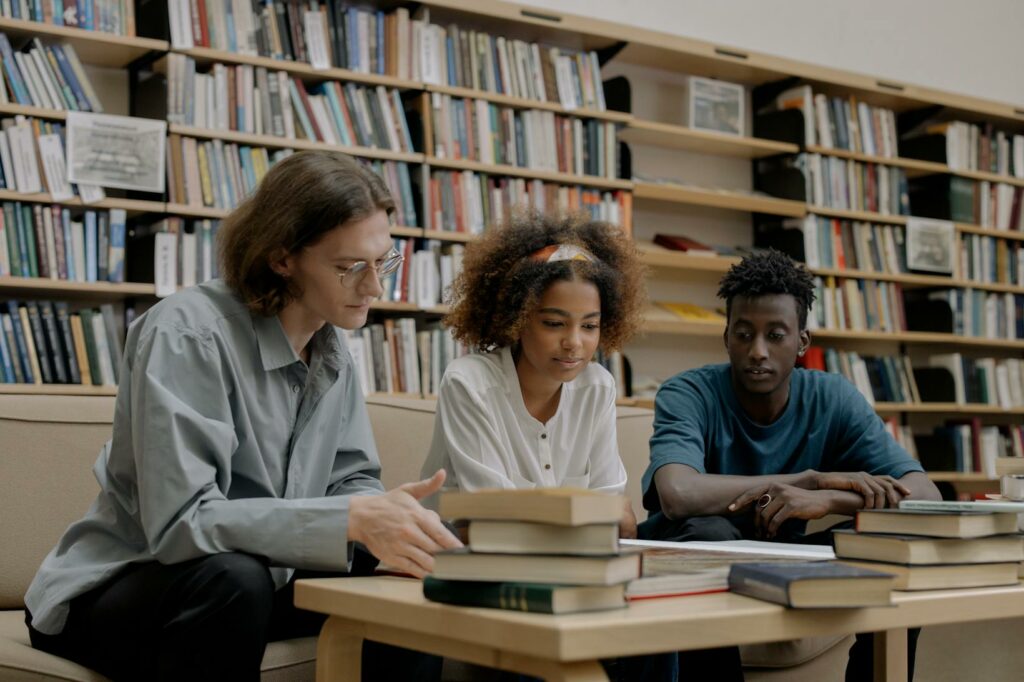Navigating relationships as a student can be both exciting and challenging. Between classes, exams, and extracurricular activities, it’s easy to let relationships take a back seat. However, setting clear relationship goals can help students maintain healthy, supportive connections that enhance their overall well-being.
Whether it’s fostering better communication, building trust, or simply spending quality time together, having specific goals can make a significant difference. These goals not only strengthen bonds but also teach valuable life skills that benefit students long after graduation.
Importance Of Relationship Goals For Students
 Setting relationship goals holds significant value for students. Structured goals provide direction, enhancing both personal and academic growth. Clear relationship objectives, like improving communication or building trust, encourage positive interactions and mutual support. These goals foster a nurturing environment that helps students feel connected and grounded.
Setting relationship goals holds significant value for students. Structured goals provide direction, enhancing both personal and academic growth. Clear relationship objectives, like improving communication or building trust, encourage positive interactions and mutual support. These goals foster a nurturing environment that helps students feel connected and grounded.
Goals also offer practical benefits. Students with clear relationship aims can better manage their time, balancing academics with personal life. This balance reduces stress and prevents burnout, promoting a healthier lifestyle. By prioritizing time spent with others, students develop essential social skills that will serve them in future professional settings.
Additionally, relationship goals help students develop problem-solving skills. Addressing conflicts in a relationship requires effective communication and negotiation. Students gain experience managing disagreements constructively, which is a valuable life skill. This practice can lead to stronger emotional intelligence, an asset in both personal and professional life.
Lastly, relationship goals can enhance academic performance. Supportive relationships provide emotional stability, enabling students to focus better on their studies. Friends or partners who share similar academic goals can also become study partners, fostering a collaborative learning environment. This mutual support system contributes to a positive academic experience, pairing emotional well-being with educational success.
Types Of Relationship Goals
Creating meaningful relationships involves setting various goals to support both personal growth and academic success.
Academic Support
Students benefit from academic-focused relationship goals. Examples of these could include study groups, peer tutoring, or sharing notes. By working together, students can address gaps in understanding and motivate each other to complete assignments on time. Forming study partnerships encourages accountability and reinforces subject matter comprehension.
Emotional Support 
Having a support system helps manage stress and challenges. Goals for emotional support might involve regular check-ins, active listening, or discussing feelings openly. This type of goal ensures students have a safe space to express their emotions, fostering resilience and mental health. Friends who prioritize emotional support can help each other navigate difficult periods and celebrate successes.
Social Skills Development
Students can enhance their social skills by setting goals that involve participation in group activities and clubs or initiating new friendships. Social goals might include practicing effective communication, learning to resolve conflicts, and developing empathy. Engaging in diverse social settings allows students to build a network of connections, which is beneficial for both academic collaboration and personal growth.
Relationship Goals Examples For Students
Setting clear relationship goals around academics can significantly boost a student’s performance. Below are specific examples of relationship goals that foster academic achievement.
Study Partners
Forming partnerships for studying is instrumental for academic success. Study partners collaborate on subjects, helping each other understand difficult concepts and stay motivated. They also quiz each other to prepare for tests. For example, two students might pair up to review calculus problems ahead of an exam, ensuring both grasp the material thoroughly.
Peer Mentoring
Peer mentoring enhances learning by leveraging the knowledge of more experienced students. In a peer-mentoring relationship, the mentor advises and guides the mentee through challenging academic tasks. They might review essays, suggest study techniques, or provide insights into effective time management. For instance, a senior student could mentor a freshman in navigating the first-year coursework and developing a study schedule.
Group Projects
Participating in group projects develops teamwork and collaborative skills. Group projects require students to work together towards a common goal, allocate tasks based on individual strengths, and support one another’s learning. An example is a lab project where students must collectively write a research report, ensuring that each member contributes effectively and learns from the process.
These structured relationship goals not only enhance academic proficiency but also foster long-term skills crucial in both personal and professional realms.
Setting relationship goals as a student is a valuable strategy for fostering both personal and academic growth. By focusing on clear objectives like improving communication and building trust students can create supportive environments that enhance their well-being. These goals not only help in managing time and reducing stress but also develop essential life skills such as emotional intelligence and conflict resolution.


